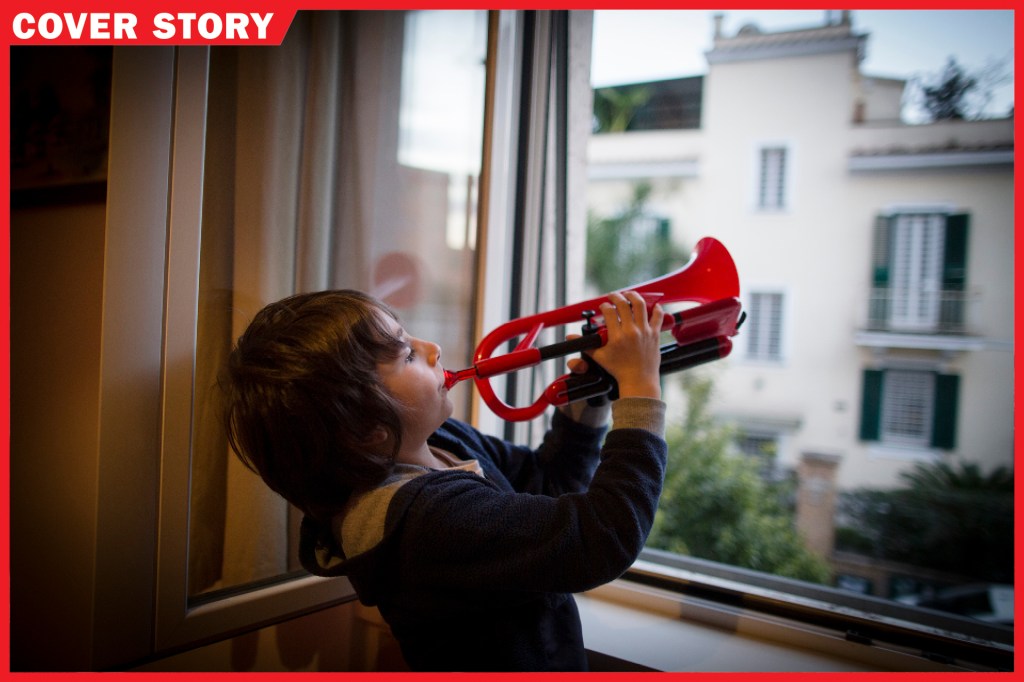
The coronavirus pandemic
pandemic
 SAM EDWARDS—GETTY IMAGES
an outbreak of disease that spreads very quickly and affects a large number of people throughout the world
(noun)
Doctors around the world teamed up to stop the pandemic and keep people healthy.
is affecting people all over the world. In the face of this global challenge, governments are working to stop the spread of the virus, and people are doing their part to support health-care workers and lift spirits. Here, TIME for Kids looks at efforts in four of the countries hit hardest. These actions show us the power of kindness and cooperation.
SAM EDWARDS—GETTY IMAGES
an outbreak of disease that spreads very quickly and affects a large number of people throughout the world
(noun)
Doctors around the world teamed up to stop the pandemic and keep people healthy.
is affecting people all over the world. In the face of this global challenge, governments are working to stop the spread of the virus, and people are doing their part to support health-care workers and lift spirits. Here, TIME for Kids looks at efforts in four of the countries hit hardest. These actions show us the power of kindness and cooperation.
China
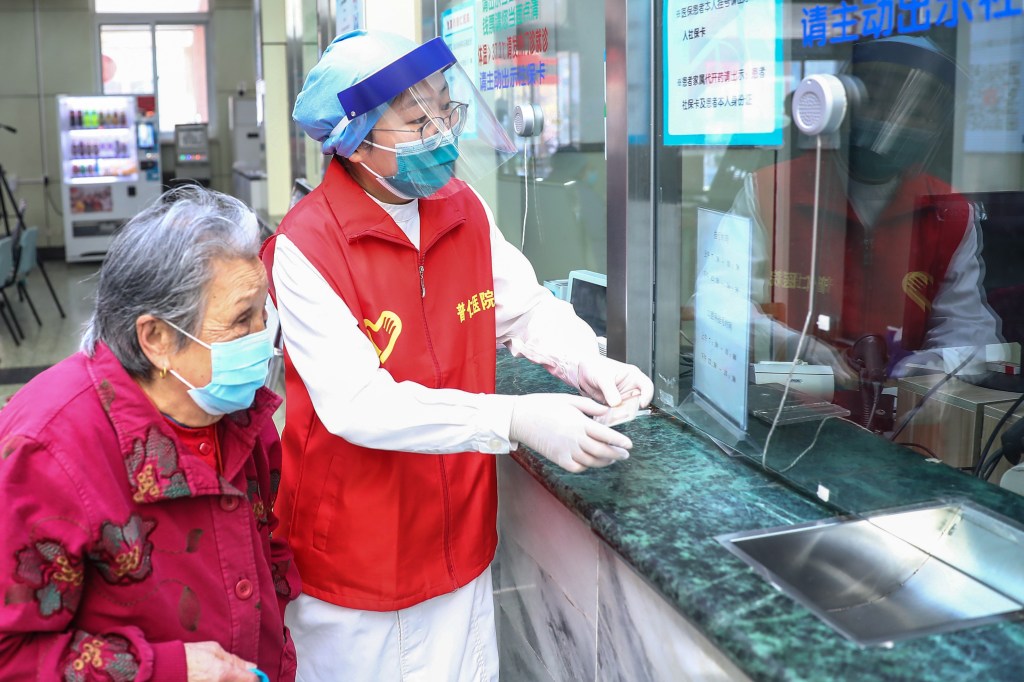
CHECKING IN A volunteer registers an elderly person at a hospital for COVID-19 patients in Beijing, China.
ZHANG YUWEI—XINHUA.SIPA U.S.A.No country has taken more-extreme steps to stop the spread of the coronavirus than China. Since the outbreak began, in the city of Wuhan, in December, entire neighborhoods have been closed to outsiders. After nearly 11 weeks, China ended its lockdown in Wuhan on April 8, as infection levels appeared to have dropped nationwide.
Chinese billionaire Jack Ma has done his part to help people around the world, including those in Iran, Italy, and Japan. In March, he donated 500,000 test kits and a million masks to the U.S. “Drawing from my own country’s experience, speedy and accurate testing and adequate
adequate
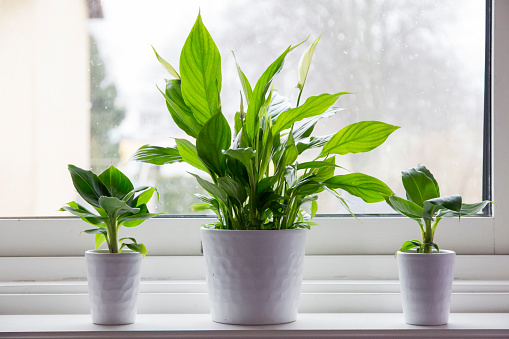 MARIA SVENSSON—FOAP/GETTY IMAGES
enough; good enough
(adjective)
The plant will not grow if it does not get adequate sunlight.
personal protective equipment for medical professionals are most effective in preventing the spread of the virus,” Ma said in statement.
MARIA SVENSSON—FOAP/GETTY IMAGES
enough; good enough
(adjective)
The plant will not grow if it does not get adequate sunlight.
personal protective equipment for medical professionals are most effective in preventing the spread of the virus,” Ma said in statement.
United States
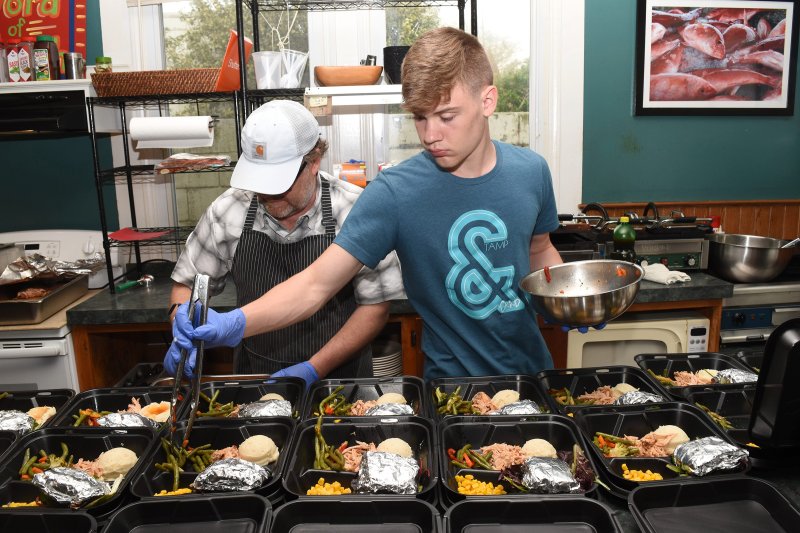
SPECIAL DELIVERY Workers prepare free lunches for the elderly, at a restaurant in Louisiana.
MELINDA MARTINEZ—THE TOWN TALK/U.S.A. TODAY NETWORK/REUTERSThe U.S. has the world’s highest number of confirmed coronavirus cases. At press time, it had nearly 600,000. New York is the epicenter
epicenter
 AARONP/BAUER-GRIFFIN—GETTY IMAGES
the center; the point at which something is most intense
(noun)
Hollywood is the epicenter of the movie industry.
, but all 50 states are affected.
AARONP/BAUER-GRIFFIN—GETTY IMAGES
the center; the point at which something is most intense
(noun)
Hollywood is the epicenter of the movie industry.
, but all 50 states are affected.
This could push the health-care system past its limits. Some governors are asking retired doctors and nurses to help. In New York, thousands have stepped up to volunteer.
The federal government is also taking steps. On March 27, Congress passed a $2.2 trillion spending bill to help people who are out of work and help keep small businesses from closing permanently.
Ordinary people are doing their part, delivering food to the elderly and showing gratitude for medical workers. “You are extraordinary,” reads a message in chalk outside a hospital in New Orleans, Louisiana.
Susan Michaels-Strasser, a public-health director at Columbia University, in New York City, says everyone has a role to play. “We’re really all in this together,” she told TIME.
Italy
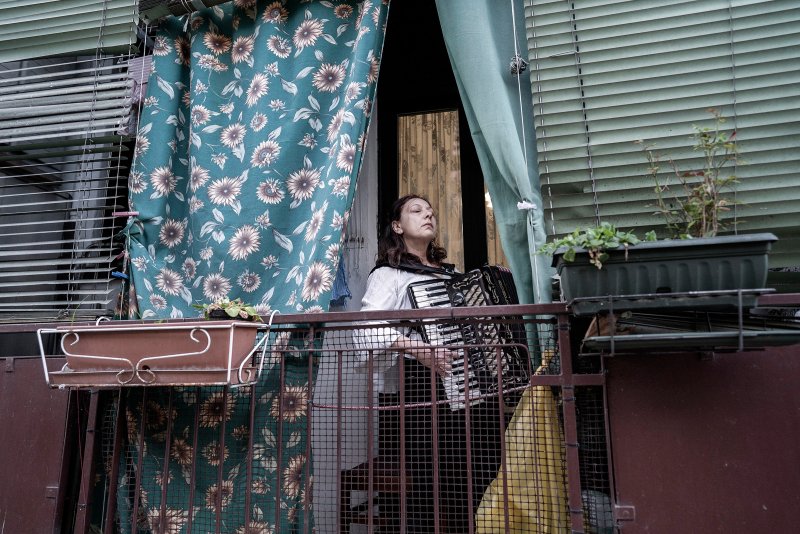
SWEET MELODY An accordion player serenades her neighbors in Milan, Italy, in March.
ALESSANDRO GRASSANI—THE NEW YORK TIMES/REDUXUntil mid-April, Italy had more deaths from COVID-19 than any other country. It has one of the world’s largest percentages of people age 65 or older. Older people with the disease are among those most likely to die from it.
On March 9, the Italian government declared a nationwide lockdown. Only grocery stores, banks, and pharmacies remained open. Since then, the spread of the virus has slowed. The number of new cases is down. Now Italy is testing more people for the virus. This makes it easier for health officials to find out where the virus is spreading and decide who should be quarantined
quarantine
 IMGORTHAND—GETTY IMAGES
to restrain a person or people’s movements to stop the spread of disease
(verb)
While we are quarantined, I'm attending school online.
.
IMGORTHAND—GETTY IMAGES
to restrain a person or people’s movements to stop the spread of disease
(verb)
While we are quarantined, I'm attending school online.
.
People are staying home for safety. To cheer them up, musicians are performing from windows and balconies, filling Italy’s empty streets with sound. Videos appear on social media. One post reads: “Italians . . . always making the best out of the worst! How can you not love them!”
Spain
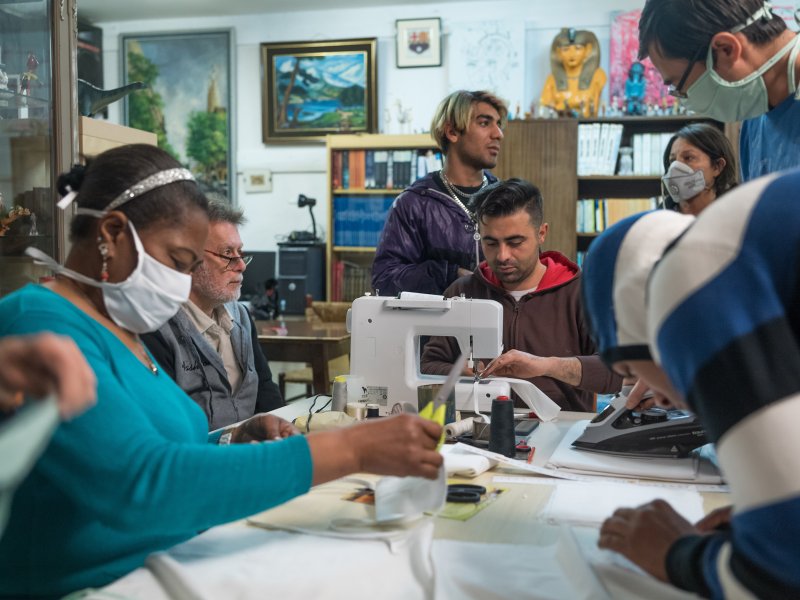
HELPING HANDS People in Barcelona, Spain, make face masks for use in hospitals and nursing homes.
SAMUEL ARANDA—THE NEW YORK TIMES/REDUXSpain ranks second in COVID-19 cases, behind the U.S. Data from April 13 showed that there had been about 170,000 instances of the disease. Many of the people infected were doctors and nurses. Like other countries, Spain did not have enough of the personal protective equipment that medical professionals needed to safely treat patients.
On March 14, Spain’s government closed schools and most businesses and told people to stay home. People across the country have been leaning out their windows every night to applaud health-care workers. Twitter user Carlos Delclós posted this message: “You are heroes. You are what solidarity
solidarity
 SDI PRODUCTIONS/GETTY IMAGES
a feeling of unity or of having the same goals
(noun)
In solidarity, he gave her a thumbs-up.
looks like, and I hope that solidarity is what’s most contagious these days.”
SDI PRODUCTIONS/GETTY IMAGES
a feeling of unity or of having the same goals
(noun)
In solidarity, he gave her a thumbs-up.
looks like, and I hope that solidarity is what’s most contagious these days.”













